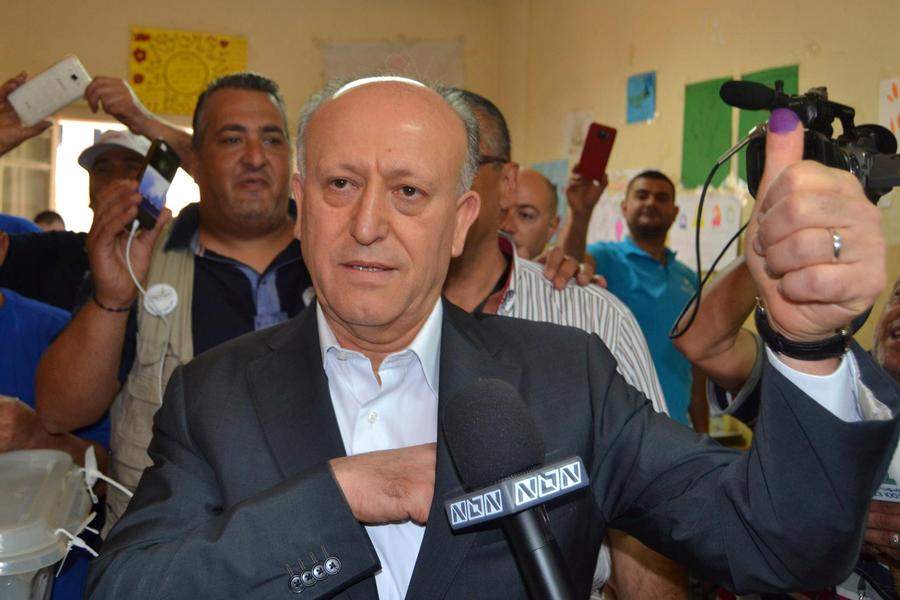Beirut- The outcome of the local municipal polls in Tripoli has fortified the popularity of resigned Justice Minister Ashraf Rifi and has encouraged him to move his leadership outside the northern capital of Lebanon.
The victory of Rifi during last month’s polls showed this Sunni figure in north is a skilled player facing the Future Movement headed by former Prime Minister Saad Hariri.
However, although Rifi’s victory enhanced his popularity in Sunni streets of Tripoli, these same polls made him face obstacles of proving himself as a rival independent from the sectarian alignment, particularly that the winning list he supported in Tripoli does not include any Christian or Alawite representatives. This in particular pushed Rifi following his victory to visit several Christian religious figures including the Maronite and Orthodox patriarchs. Following his visits, Rifi said: “We and Tripoli are keen to have effective Muslim-Christian and Muslim-Alawite alliances.”
Following such obstacle, Rifi chose to widen the circle of his connections by visiting other regions. He last visited the Sidon, which is a stronghold of the Future Movement in South Lebanon. However, sources from Sidon said Rifi’s visit was only “technical” and “lacks any political symbol.” Sidon is the hometown of late Prime Minister Rafik Hariri and therefore, is considered an electoral base to both former prime ministers Saad Hariri and Fouad Siniora, and also to Deputy Bahiya Hariri.
Rifi spoke during his visit to Sidon, but this time in an escalatory rhetoric tone, following a series of campaigns launched against him. Without naming anyone, Rifi said: “I will not apologize to anyone because I decided to make the martyrdom of [former Prime Minister] Rafik Hariri the torch that lights our way.”
Despite his disagreements with Hariri, which were deepened by the outcome of the polls, Rifi kept a connection with the movement’s political ethics, by referring to Hariri, the father, as a base in all his previous speeches. He had also chosen to participate in the elections as being part of Hariri and the Future Movement’s heir.
Future Movement official Rashed Fayed told Asharq Al-Awsat that Rifi was “trying to use his political victory in Tripoli’s polls to broaden his activities inside and outside the city.”
Fayed asserted that there has never been a unique leader for any sect in Lebanon, expect for Rafik Hariri, who was seen as a leader of all Lebanese confessions. He said that Saad Hariri enjoys some of his father’s leadership traits despite the presence of security threats that forced him to be outside the country and therefore weakened his popularity in several areas.
Therefore, Hariri’s absence might have created a chance for Rifi and others to build their own popular base, a fact not denied by observers close to Rifi.
Sources say that Rifi would face several political obstacles because his leadership represents only the Sunni sect in Tripoli, and therefore, he remains very different from the Future Movement that has representatives from all sects in the Lebanese parliament.
Rifi decided to face the Future Movement during the last polls following tension in his relations with Hariri, after he resigned from the cabinet last February when the government refused to discuss his proposal to refer Michel Samaha’s case to the Judicial Council.
